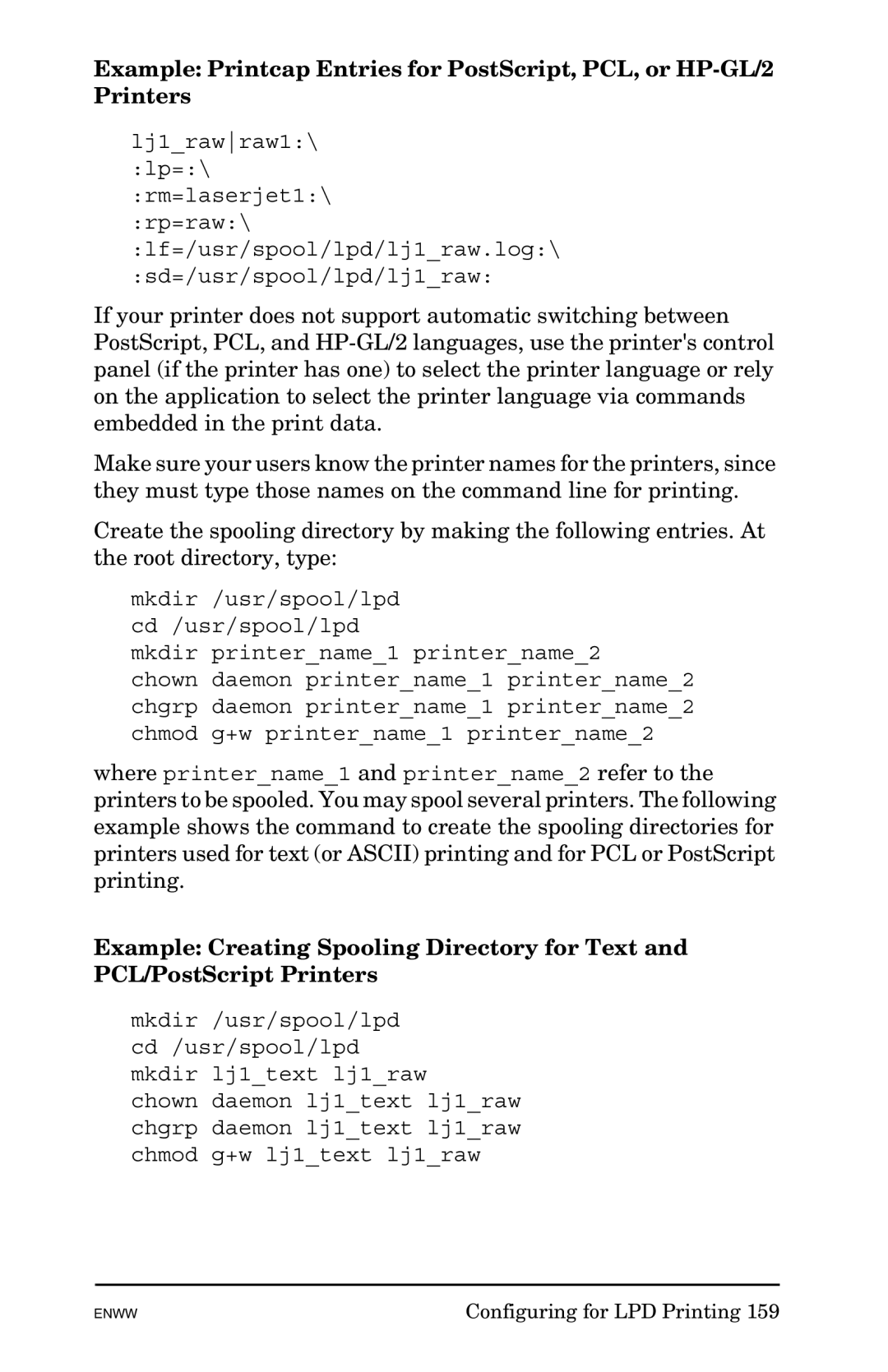Example: Printcap Entries for PostScript, PCL, or
lj1_rawraw1:\ :lp=:\ :rm=laserjet1:\ :rp=raw:\ :lf=/usr/spool/lpd/lj1_raw.log:\ :sd=/usr/spool/lpd/lj1_raw:
If your printer does not support automatic switching between PostScript, PCL, and
Make sure your users know the printer names for the printers, since they must type those names on the command line for printing.
Create the spooling directory by making the following entries. At the root directory, type:
mkdir /usr/spool/lpd cd /usr/spool/lpd
mkdir printer_name_1 printer_name_2
chown daemon printer_name_1 printer_name_2 chgrp daemon printer_name_1 printer_name_2 chmod g+w printer_name_1 printer_name_2
where printer_name_1 and printer_name_2 refer to the printers to be spooled. You may spool several printers. The following example shows the command to create the spooling directories for printers used for text (or ASCII) printing and for PCL or PostScript printing.
Example: Creating Spooling Directory for Text and PCL/PostScript Printers
mkdir /usr/spool/lpd cd /usr/spool/lpd mkdir lj1_text lj1_raw
chown daemon lj1_text lj1_raw chgrp daemon lj1_text lj1_raw chmod g+w lj1_text lj1_raw
ENWW | Configuring for LPD Printing 159 |
